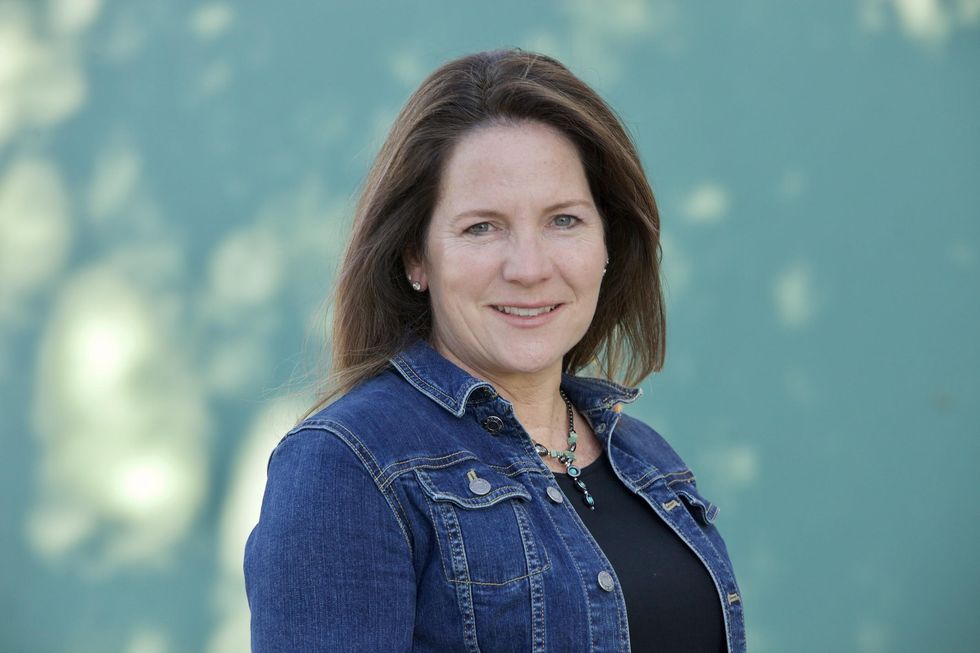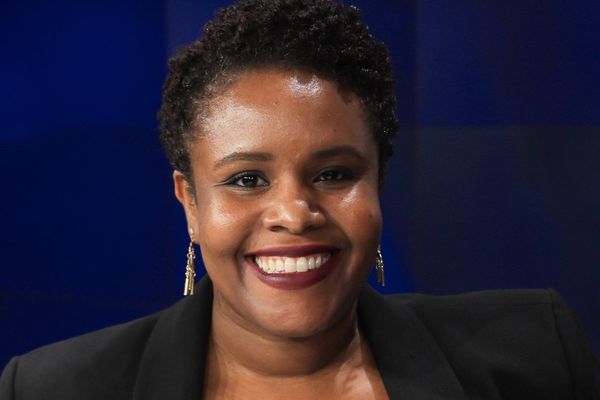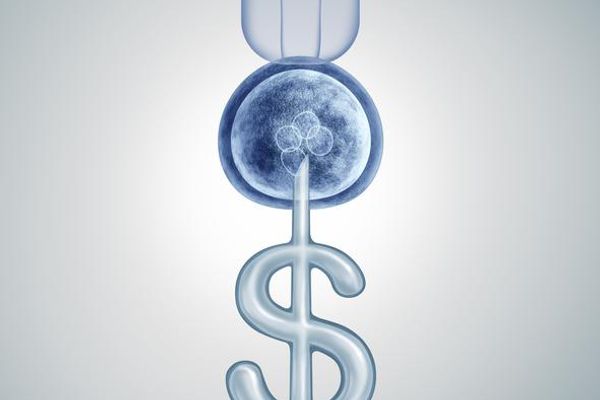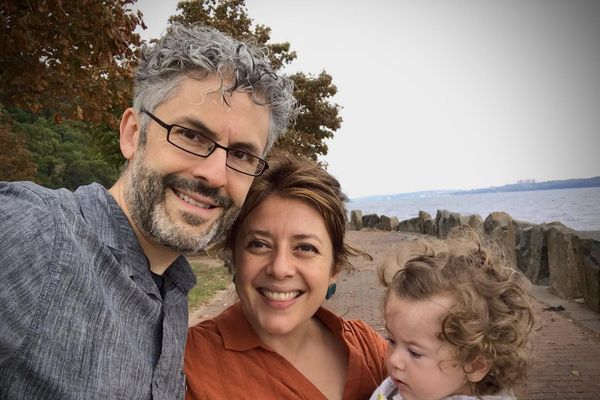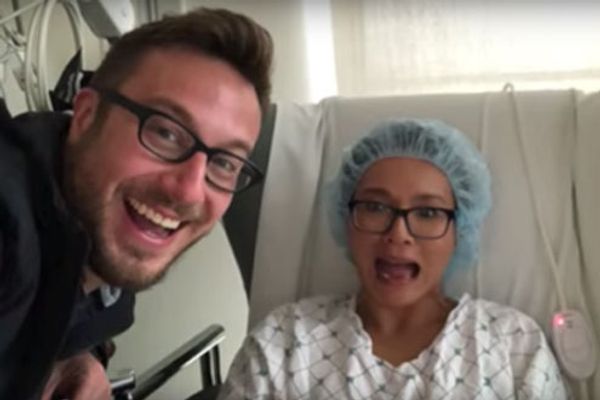By Kelly Hedglin Bowen
Looking back, the evidence was staring me in the face. I had written about every gritty detail of my infertility experience in my memoir—the hormonal roller coaster, numerous exams and failed conceptions. But I'd missed the painful truth. With each injection and vaginal probe, a bit of my sexuality had withered. In our effort to conceive a child, my husband and I had inadvertently killed our sex life.
I'll admit, I was never a sexually liberated siren. Years of Irish Catholic guilt tamped down my open expression of sexuality. I wasn't exactly nunnery material, but I considered myself a "good girl." I was taught that intercourse should happen only between a husband and wife, and for one purpose—conception. All notion of pleasure was absent from the conversation. When I finally had sex at age 18, my mother's sarcastic voice echoed in my head: "Don't go out and procreate and come home." I knew she'd never kick me out, but I heeded her warning. My sexual expression focused on preserving my reputation and not getting pregnant.
When I married and decided to start a family at 37, I never questioned my ability to conceive. I assumed that genetics mattered; that coming from a fertile lineage guaranteed me the same fresh follicles as my female relatives.
Trying to conceive began innocently enough. My husband Harry and I had frequent, unprotected sex all over the house: in the kitchen or the shower—it didn't matter. For three days a month, I viewed it as a sporting event: get the eight-ball in the pocket, puck in the net, ball in the basket. We behaved like jocks. Our sweaty physical sex was laced with hope and peppered with aggression.
I assumed we'd be pregnant quickly. But without fail, I'd find myself on the toilet with a fistful of tissue, digging for the blood I knew was waiting to flow.
Soon sex became prescriptive. Making love was dictated by charts and calendars, not wine and foreplay. I was no fan of sex on demand, but Harry admitted he felt cornered, even resentful about it. On those precious days when I was ovulating, our connection felt impossible. We were now lab partners, and our once-carefree sex life became a chore.
Like a sick joke, my body was failing to do what Divine design had promised. Facing the prospect of a childless future, I sought help from a reproductive endocrinologist.
Infertility treatments gave Harry and me a plan and eased the tension between us. Someone else was calling the shots, and our resentment and blame shifted to the process itself.
We started simply, with a series of intrauterine inseminations (IUI). Sex moved from the bedroom to the hospital, where intimacy is measured in the milliliters of a sperm sample.
When you enter the clinic waiting room, everyone knows you're there for one reason—ejaculation. The unstated directions are take your time but hurry up, because other couples are waiting. It's distracting to be timed as you go through the motions of an intimate sex act. Masturbation is the preferred method of collection—it ensures the cleanest possible sample, for the best chance of conception. We tried it, multiple times, without success.
Next we decided to try in vitro fertilization (IVF), a process where daily hormone shots became my routine and delayed ejaculation became Harry's. Harry insisted on helping to administer my syringes. I'd pose myself like a drunken gymnast over the countertop, giving him a clear shot at my bum—so he could be part of the process. One night as he held the syringe firmly in place, Harry began slowly counting to five. As if trying to keep rhythm, he leaned in behind me and pulsed his groin on my thigh. "What are you doing?" I laughed. "Making babies," he answered.
But as the months wore on and our failures mounted, our playfulness ran out. Now when we entered the lab, a tech directed Harry, alone, into an oversized bathroom stall, handing him a specimen cup to make his deposit. To keep my hand in the game, I'd give his crotch a quick jostling. Our sexuality was expressed in micro-moments like this.
I learned that infertility as a disability is real, and undiagnosed infertility wreaks havoc on sexual confidence. Eventually, I was able to conceive through IVF and, by nothing short of a miracle, birth a healthy baby.
Today, our focus is on our thriving middle-schooler. We thought we'd recovered, blaming the routines of parenting and domesticity for dulling our sex life. But the unacknowledged distance remains. Lately, our intimate moments are born out of sheer frustration—and the fear that if we don't have sex, we might turn to other people.
But we're no longer on our A-game. Harry, while still handsome and fit, is becoming the younger, crustier version of his father. And I—after six years of infertility drugs and a C-section gash across my pelvis—am exhausted and emotionally depleted. Any lingering sexual desire to be nurtured clashes with Harry's more physical approach. Still, we remain passionately linked, rooted in love and the family we've created. We are far from reaching across the aisle for another warm body—I hope.
Kelly Hedglin Bowen is finishing a memoir about infertility and reproduction. She founded Wind~Word Floating Salons. Her essays have been featured in "Creative Nonfiction, Fiction Advocate," and online at the HuffPost and been nominated for the Pushcart Prize & the Annie Dillard Award for Creative Nonfiction. www.kellyhedglinbowen.com
- Infertility Hub - HealthyWomen ›
- Infertility Treatment Options ›
- Infertility and Your Relationship ›
- Infertility Isn’t Just a Physical Journey — It’s an Emotional One, Too - HealthyWomen ›
- The Unicorn in the Room: My Infertility Journey Led to an Unexpected Discovery - HealthyWomen ›
- Our Gestational Carrier Brought Us the Joy of Parenthood - HealthyWomen ›

